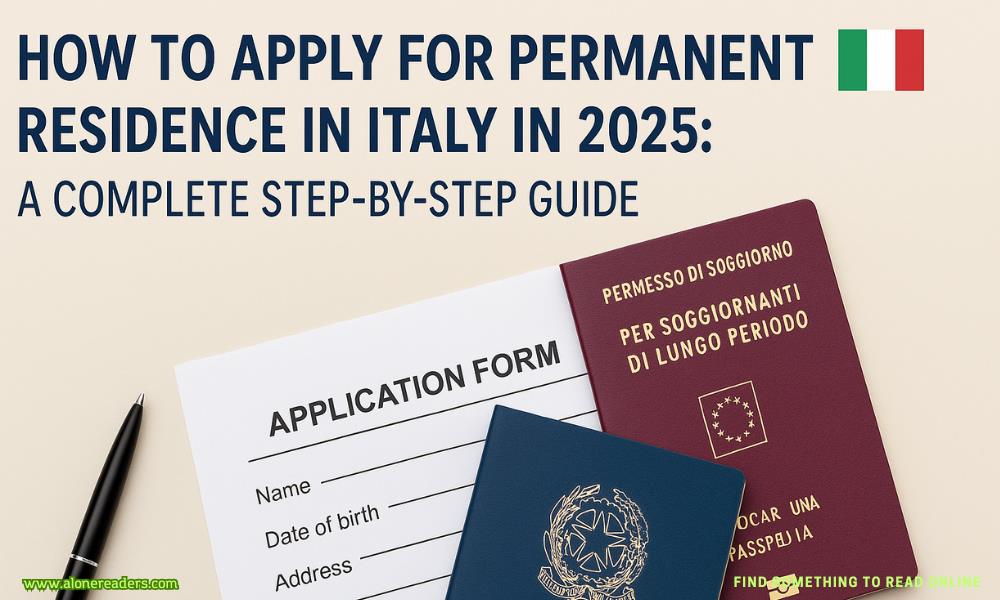Page 3 of Six Wild Crowns
Boleyn’s brother and sister surround her, touching her bodice and bolstering her train, making a grand show of admiring her and, what’s more astonishing, meaning it. For all that Boleyn shines brightest, there is an open, easy complicity between the three siblings that brooks no disdain or jealousy. George’s spouses approach and are absorbed into the circle of confidants. Seymour has noticed Rochford around High Hall – she is always restrained, always watchful, in contrast to her husbands George and Mark, who have a reputation for being raucous.
“You must insist on it,” Boleyn’s sister says. “A fortnight. Nothing less.”
“Mary, you’re being too much,” Rochford says. Mary. A name purely for her, not likeBoleynorSeymourorRochford, the brands of the first-born daughter to make sure everyone knows who their fathers are even after they take their husband’s last name.
“It will depend on how the war with Alpich goes,” Boleyn says, looking past her siblings to the gardens beyond the window. “He may need to return to his army. He must serve the kingdom.”
George places his hands on his sisters’ shoulders. “Cynn æ hredsigor.”
King and victory. The Boleyn family motto, as though their ancestors had foreseen this day.
The new queen reminds Seymour of a bow, the arrow already fitted: taut, dangerous, elegant. She wears her wit the way Seymourwears her veil. Comfortable armour. But there’s also something blunt about her. It must come from her time in Capetia, because it is certainly not Elben behaviour. It’s undoubtedly part of what makes her so interesting, but Seymour wonders whether such entertaining audacity might become tiresome after a while. It must be exhausting to perform.
In the very centre of High Hall, a bell tolls. It’s followed by the sound of music – a choir of young girls singing the traditional royal wedding madrigal. It’s so faint that it could be birdsong, heard on the brink of wakefulness. Seymour likes it at this distance – heard close the song is too aggressive for her liking.
Without instruction, Seymour and the other four ambassadors move to their appointed spots along Lady Boleyn’s train. It’s grotesquely long, Seymour doesn’t know what she or her seamstress were thinking. She tries not to catch the eyes of the others in case they all descend into laughter. Boleyn herself seems momentarily to be aware of how ridiculous it is, especially when she almost trips over the fabric. She regains her composure, and glances at them. Ambassadors are generally chosen for their tactfulness, so they play their parts perfectly. Eyes downcast beneath their veils, hands cupped over their stomachers. Boleyn turns at the door to address the room behind her and the crowd assembled in the antechamber outside.
“Shall we get married?” Boleyn says. Her voice is higher than normal, her hands fingering the objects on her pomander. There’s a brightness to her features though – these aren’t the nerves of a reluctant bride.
Another clot pushes its way into the cloth between Seymour’s legs as they process through the palace. Boleyn’s consort chambers are in the north-east wing, in accordance with her station as the queen-to-be of Castle Brynd. The Royal Sanctuary is situated on a higher floor, just beneath the king’s rooms at the very apex of High Hall. The procession must pass through the centre of the building – the series of halls and chambers that make up the spine of the palace. Each one contains a different assortment of courtiers – politicians, knights, artists and performers. Some of them are loyal toa particular queen, some to a political persuasion and some to one of the empires across the sea.
The other ladies-in-waiting begin to amass coteries. Foreign ambassadors and courtiers flock to Howard’s lady because, as the youngest queen, she is most likely to bear an heir. Seymour knows that this is why she and Cleves’s lady are largely left alone – Aragon is now past childbearing age, and with the new, Capetian-allied queen in the ascendant, Aragon’s Quistoan heritage makes her favour a gamble, and it is well known that the king rarely visits Queen Cleves. Even simpletons like Seymour understand the fundamental rule of Elben: without a male heir, the bordweal fails. Without a male heir, foreign powers invade. Without a male heir, Elben is lost. What puzzles her, though, are the lack of attendants to Queen Blount’s ambassador – Blount is still young, still in the king’s favour, or so she had thought.
Soon even the few courtiers keeping pace with Seymour drop away. Seymour is thankful for it. Queen Aragon still possesses some power, due to her royal lineage, but they’ve realised that Seymour is in no position to wield it. She watches anxiously for her own family, and with every chamber they pass through, she feels lighter. Maybe they’ve decided to stay away from High Hall today, or maybe they’re too busy scheming elsewhere.
The procession mounts the central staircase to the floor above. These higher floors are the domain of god and king and decorated according to the king’s taste. Initials are carved into the panelling – those of the monarch and his wives, entwined. In every window hangs an ornamental birdcage, from which canaries and nightingales warble, and the candles have been replaced by expensive lantern dragons that scamper around their cages in perpetual motion. The birdsong combines with the choir’s melody, which is louder now. The design of High Hall – a domed skep with six sides and a crowning turret – is such that the acoustics make distances ephemeral. When Seymour was a child, her nurse told her that the original architect designed it so there is a single spot in the king’s chambers from which he can hear the whispers of the quietest servants in their lodgings six floors below. Before Seymour camehere, she thought it was superstition, like the myths of thesunscína– the fabled mirrors that permitted royalty to communicate across vast distances. Now, though, Seymour can well believe it. This is a building that is made for ears, whether by design or otherwise.
As the procession passes into another gallery, Seymour spots one of her brothers and feels her shoulders curling further inwards. Edward’s eyes land on her like a hawk on a sparrow. Seymour keeps her own on Boleyn’s naked hair. Unbidden, she imagines Boleyn winding it around her neck and pulling it tight, like deadly silk. The hairs on her arms stand on end.
Edward falls in beside his sister, so close that she can smell the hog he ate for lunch.
“Bare hair,” he comments, his eyes raking Boleyn’s back. “How common. Do you think she showed him her other hair to get him to the altar?”
“Shhh. People will hear,” Seymour says. She wants to shout at him to be quiet, but she’s never been able to stand up to either of her brothers. Besides, she’s still shaken by that image of Boleyn’s hair, by the way it shifted something in her stomach. She’s no prude, but an infatuation with the new queen would be excessively inconvenient.
“Blount’s on her own again,” Edward says, looking over at the third queen’s ambassador, a matronly woman in a deep grey veil. “The rumours must be true.”
“What rumours?” Seymour asks.
“She’s ill again,” Edward replies, making a slicing motion across his throat.
As if she’s heard him, Blount’s ambassador looks at Seymour across the expanse of Boleyn’s train. Her unhappiness is resigned and Seymour finds herself pulling back. So this is why she had so few attendants. For all that she will never be the brightest light at court, Seymour can sense a lost cause. It’s primal, especially in Elben where the death of a queen signals instability and the threat of invasion.
“They’re saying Gkontai warships have been spotted off the coast of Hyde,” Edward mutters. “They must be waiting. And the war in Alpich is going badly.”
“Remember what Thomas says about listening to rumours, brother,” Seymour says.
“Remember what Father says about women offering advice.Like a dog trying to write.” Edward reaches over and casually pinches the skin on the back of Seymour’s hand. She swallows her justifications and awaits what he is inevitably about to say. She’s stupid, but anyone who knows Edward can tell what his next scheme will be.
“I’d have preferred Plythe if we could be rid of Howard, but if Blount’s dying, Hyde would be better than nothing. You put yourself in his way, you hear?” Edward says. “Or don’t bother speaking to me again.”
They pass through a narrow gallery, and the sound of the choir becomes clearer. The doors at the end are already open. Beyond is the Royal Sanctuary, where the choir of angelic girls is assembled. Beyond them, at the head of the altar, waits King Henry in cloth of gold and purple, his eyes only for his new bride. How could he have eyes for anyone else? How could anyone? And how on earth is Seymour supposed to draw his attention when Boleyn is in the room?
Another clot slides into her cloth as Edward delivers his parting shot: “By the by – you stink.”
CHAPTER THREE
Boleyn
- The Prince's Secret Twins by Elizabeth Lennox
- Tangled Desires by Tory Baker
- At the Edge of Surrender by A.L. Jackson
- A Touch of Fate by Cora Reilly
- Untouchable Love by Lucy Darling
- After Hours by Caitlin Crews
- Shelter from the Storm by Mari Carr
- Someone Knows by Vi Keeland
- Hawk by Fiona Davenport
- The Silencer by Brooke Summers
- The Beat of her Heart by Emily Hayes
- The Neighbor's Son by K. Webster
- Vasily the Hammer by C.B. Alice
- Convenient Vows by D.C. Beks
- Wrapped in Silver by Sara Vice
- Ruined By Capture by Sherry Blake







